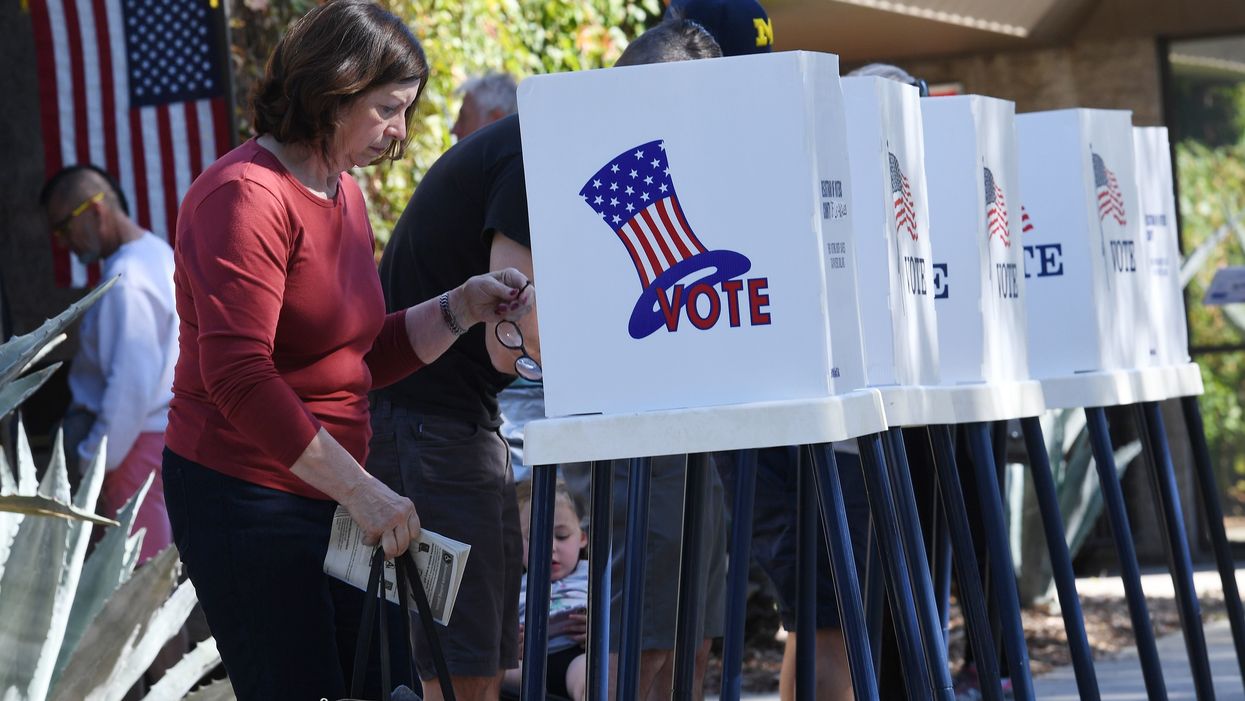
MARK RALSTON/AFP/Getty Images

The National Bureau of Economic Research found that the laws did not negatively affect any races or party affiliations
According to a study by a left-leaning think tank, strict voter ID laws don't have a negative impact on turnout. This remains true even when you factor in different races and party affiliations. The researchers said that people who really want to vote will be able to "acquire it [a valid ID] before the election."
The study was published by the National Bureau of Economic Research. In 2013, liberal economist Paul Krugman, who noted that at the time he was a NBER research associate, called the group a "neutral transmission channel." What it certainly wasn't, according to Krugman, was right-wing.
The study itself was written by Enrico Cantoni from the University of Bologna in Italy and Vincent Pons from Harvard Business School.
Cantoni and Pons argued that:
[W]hile strict ID laws create additional costs for people without ID, those who want to vote can acquire it before the election, and it is unclear what share of non-ID-holders would vote otherwise. Moreover, other citizens may become more likely to vote if the laws enhance their confidence in the fairness of the election, similarly to the participation boost of improving beliefs about ballot secrecy
They also found that:
Using a nationwide individual-level panel dataset 2008–2016 and a difference-in-differences (DD) design, we find that strict ID laws have no significant negative effect on registration or turnout, overall or for any subgroup defined by age, gender, race, or party affiliation. Most importantly, they do not decrease the participation of ethnic minorities relative to whites. The laws' overall effects remain close to zero and non-significant whether the election is a midterm or presidential election, and whether the laws are the more restrictive type that stipulate photo IDs.
Cantoni and Pons said that the data they analyzed covered "the vast majority of voting-age individuals" for the time period spanning from 2008 to 2016.
The study also notes that "well into the 19th century" political parties would utilize "repeaters," paid groups of people who would walk from polling place to polling place to vote multiple times.